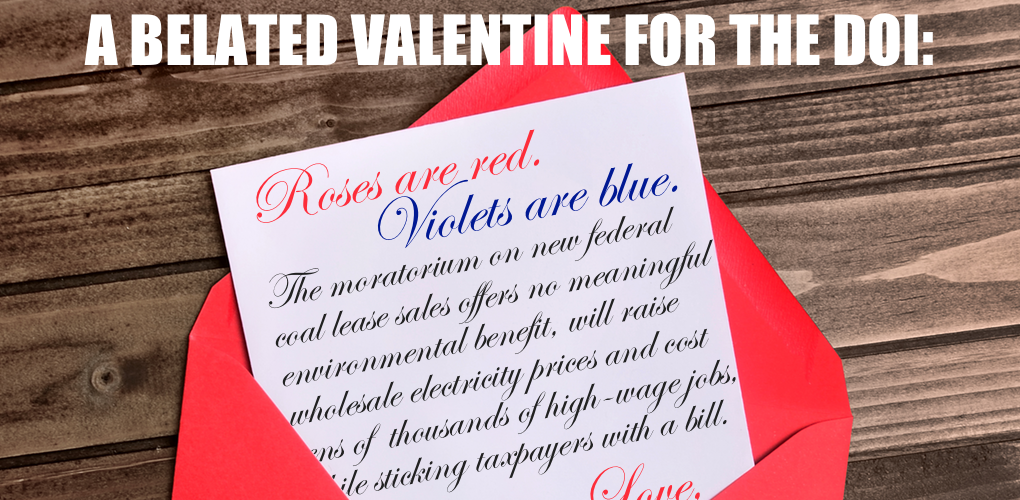
A Rollback, or a Reset?
February 15, 2017
This week the Senate will send a belated Valentine to blue-collar Americans. It’s likely the upper house will confirm either Mr. Zinke as Secretary of the Interior or Mr. Pruitt as the new EPA administrator before adjourning for President’s Day.
Both men will be greeted warmly by the many whose jobs are tied to the coal industry – from the mines to the ports, and the power plants and railroads in between. After surviving an eight-year regulatory siege mounted by the previous administration, blue collar workers will forgive a late bouquet of love from a sympathetic government that feels them.
This is the reason both House and Senate chose the so-called Stream Protection Rule as the first regulation voided with the Congressional Review Act. It’s the same reason President Trump selected it to become the first bill he signs. The rule creates no environmental benefit but lots of economic hardship for communities clobbered by a slow decline in manufacturing and an administration drunk on regulations. If politics today is often symbolic, then Thursday’s White House event will be a powerful symbol for reasserting government’s commitment to regulatory responsibility.
The same indictment of the stream rule characterizes much of the regulatory onslaught against the coal industry in the past decade. The Clean Power Plan would achieve virtually no benefit for global warming but would raise wholesale electricity prices, cost tens of thousands of high-wage jobs and stick taxpayers with a bill for billions of dollars in infrastructure needed to replace coal.
The executive order by former Interior Secretary Jewell placing a moratorium on new federal coal lease sales offers no meaningful environmental benefit whatsoever but much economic pain from the loss of coal revenue, good jobs and an abundant, affordable energy source.
This explains why allegations of a coming “roll back” of environmental protections ring hollow. No meaningful protections are being “rolled back”. Instead what will be rolled forward is attention to the human toll from regulations in service of political agendas, not people.
Hopefully, over the next few years, it will no longer suffice to justify any regulation, whatever its cost, by calling it “environmental” or “clean”. In fact, a regulatory re-set that balances real costs with real benefits might even help those words regain the credibility they’ve lost.
- On February 15, 2017
